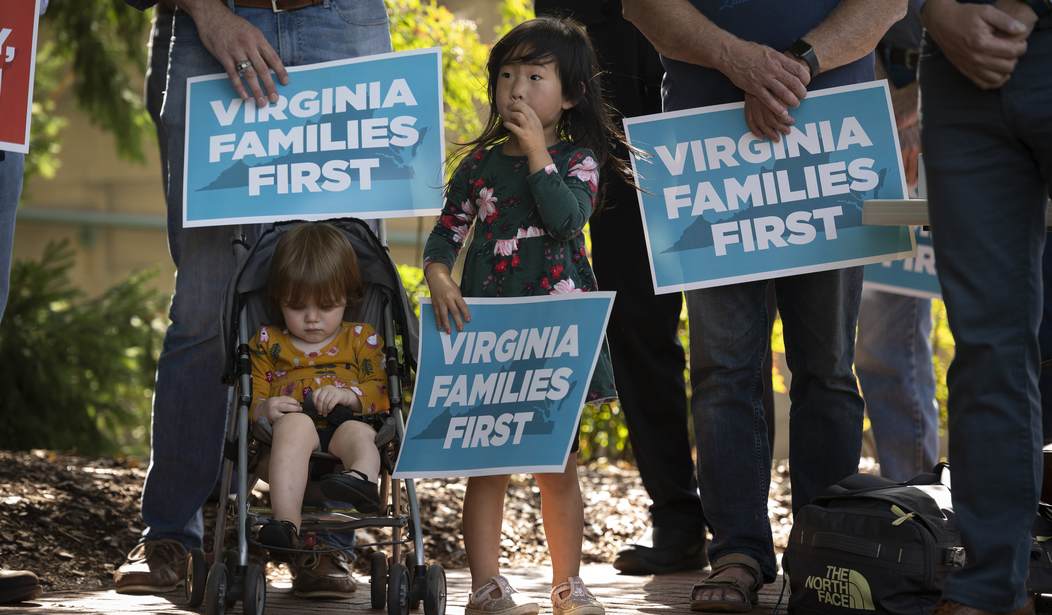Last week, the Biden administration announced the first-ever “National Strategy on GenderEquity and Equality,” an “ambitious agenda” that aims to “close pernicious gender gaps.” Although it laments that women are barred from achieving like men, Joe Biden did not hand the presidency to Kamala. Instead, the strategy suggests that more welfare, more police (yep), and bigger federal bureaucracies in the workplace and in education should solve the problem.
Don’t buy into the hype. The government often exacerbates legitimate crises — COVID-19, terrorism, poverty — to justify preferred policy measures. But blatant sexism is a dying brand, not an urgent crisis. We are more educated than men, have less dangerous jobs, and, for now, don’t have to register for the draft. No doubt, many women have been in harmful relationships, excluded from an old boys’ club, or had to make mom-related career decisions. But these problems were never caused by too little federal government in our lives, and can’t be solved by hiking our taxes.
Undeterred, our federal leaders are focused on helping women recover by “ending cash bail” and giving more “government-funded services” to illegal migrants. But they’ve missed the real crisis. The man crisis.
One-third of all working-aged men aren’t doing anything. They aren’t working, they aren’t looking for work, and this isn’t COVID’s fault. The labor participation rate for men has been dropping steadily since 1950. How can women improve their lot if they have to take on responsibilities for both men and women? I propose a new strategy, for men. And while it won’t cost a single federal dollar, it will require good decision-making.
Get a job. There are 10.44 million jobs open. True, they aren’t mostly CEO jobs. Nor are they the manly manufacturing jobs that built the Rust Belt. But at this point, a job is a good first step. Unemployed men have twice the depression rate as unemployed women, and unemployment is related to increased crime, including property crime and sexual assault. And employment is a good in itself. It imposes discipline, it provides opportunities to learn, and it ties us to our communities.
Recommended
Be a father to your children. One in four children lives without a father in the household. The burden falls on women in the immediate term, but father absenteeism has a real impact on the boys raised by single mothers. Children who grow up without fathers are 20 times as likely to show behavior problems, 32 times as likely to run away, 20 times as likely to end up in youth prison, and are more likely to become absent fathers themselves, perpetuating the problem.
Join a church, golf group, or some sort of grown-man fraternity. A 2018 study showed an all-time high number of adults indicating they felt lonely or otherwise isolated. And that was before COVID locked us in our homes. Loneliness and social isolation are twice as harmful to physical and mental health as obesity. Social isolation is linked to higher risk of Alzheimer’s, diabetes, high blood pressure, stroke, and premature death. While both men and women experience social isolation, women tend to look for quality relationships, where men tend to need denser friend groups. This means men need to get off the couch and go fishing, join a basketball league, or otherwise engage in the community, even if Dr. Fauci looks down his nose.
Get married. The share of married men has fallen steadily since 1970. But marriage is the key to health, wealth, and even sexual satisfaction. Marriage is associated with a 10-20 percent increased earning power of men. And men who are married live almost 10 years longer than their unmarried peers. More than twice the number of married men report they are “very happy” with life than unmarried or cohabitating men. Oh, and married men report being more satisfied in bed. So there’s that.
The Build Back Better bill exacerbates the man crisis. It structures child care incentives, for example, to punish marriage, and creates benefits and tax incentives to stay unemployed. This is a problem. U.S. men are increasingly unemployed, single, lonely, and absent fathers. They are thus increasingly unhealthy, depressed, and financially unstable, and make the problem generational. We cannot have strong women in a country where women must also play the role of men.
























Join the conversation as a VIP Member